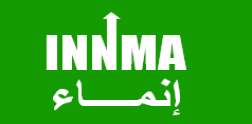WHAT WE DO
Agriculture and Natural Resources Management (ANRM)
The main objective of the ANRM program is to increase equitable and sustainable accessibility to natural resources and services in rural communities in addition to support smallholder farmers economically with a special emphasis on empowering women.
In doing so, there are multifaceted impediments both external and internal that obstruct the achievement of the sought objectives such as land tenure and ownerships, production cycle inter-relations, the decreasing land productivity, food insecurity, water scarcity, ineffective agric. Cooperatives, and lack of awareness and information dissemination.
As such the program seeks to implement a solid strategy that underpins the empowerment of small holder farmers to adopt best practices. Increasing their resilience to climate change, enabling small holder farmers to reach to global markets, and apply effective water conservation methods.
The ANRM program is collaboratively work with variety of stakeholders such as Community Based Organizations (CBOs), governmental and Non -governmental development organizations; along with creating partnerships with the private sector to evoke the change in the agric. Sector in the country where INNMA project is implemented.
Food Security, Nutrition, and livelihood support
Chronic undernourishment or hunger affect about 795 million people, worldwide. Women are the first to go short, or even go without. The three major factors that contributed to the food and nutrition insecurity, are:
– Poverty that prohibits people from buying food to feed themselves or their families.
– Climate change that affects food productivity, especially for small-scale farmers ; and
– Food waste and losses
At least 3.5 million children under 5 years of age die from malnutrition every year. Malnourished mothers are more likely to die in childbirth and have low birth-weight babies. Chronically malnourished children face lifelong consequences of reduced mental capacity, lower learning in school and reduced lifetime earnings.
INNMA provides food and nutritional support to vulnerable and marginalized families. This will ensure access to well stocked local markets, natural resources that are less at risk from climate change impacts, and strengthening livelihoods so that people are able to purchase food.
Water, Sanitation, and Health (WASH)
Ground water contamination, water quality deterioration, poor sanitation coverage, poor focus on hygiene, mismanagement of solid and liquid waste, rapid urbanization and other emerging issues due to climate change, demand adequate necessary capacity building and innovative approaches, especially among impoverished communities and fragile economies.
Affordable and sustainable access to WASH is a key public health issue and the focus of sustainable development goal 6 (SDG 6) aims at equitable and accessible water and sanitation for all, with target 6.2 specifically mentioning women and girls.
In 2017 the WHO estimated that 2.3 billion people without sanitation facilities and 844 million people without access to safe and clean drinking water,
Lack of sanitation contributes to about 700,000 child deaths any year due to diarrhea, especially in developing countries. Chronic diarrhea can have long term negative effects on children, in terms of both physical and cognitive development. In addition, lack of WASH facilities can prevent students from attending school, impose an unusual burden on women and reduce work productivity.
Disaster Response and Recovery
Every year, disasters put millions of people in danger and costs billions of dollars in property damage and human lives. INNMA intended to work as a part of a team helping communities reduce risk, helping emergency officials prepare for all hazards, and helping people get back on their feet after their lives are disrupted by a disaster.
